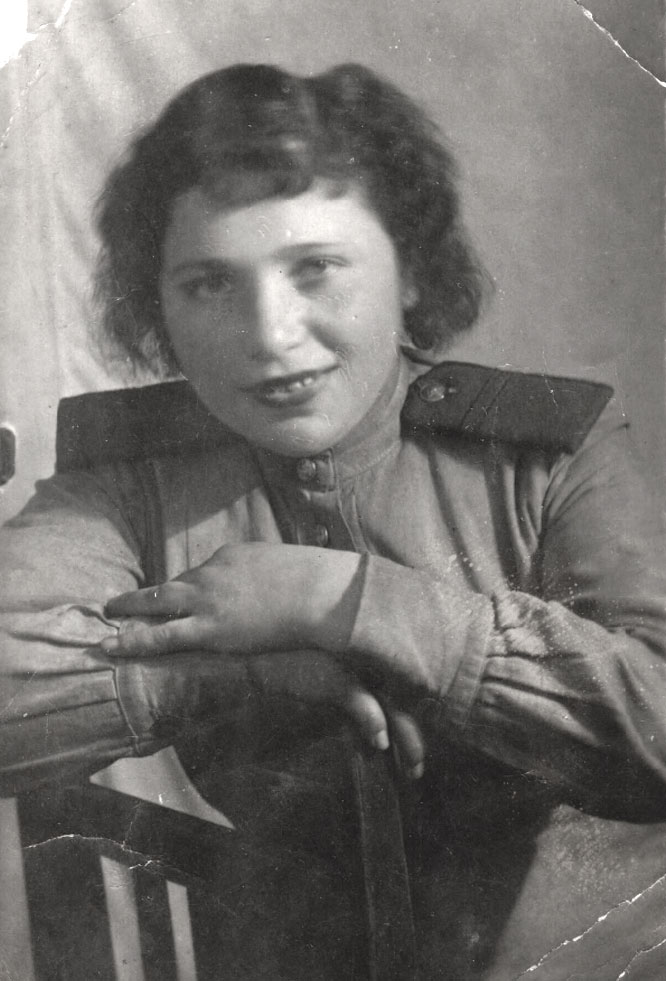Raisa Bruk was born in 1924 in Vitebsk, Belorussia. Both of her parents worked at a leather factory. She later recalled the 1930s as a time of permanent hunger for her family. Upon finishing eight years of school, Raisa began to work at the same factory as her father and mother. With the beginning of the Soviet-German war, the factory and all its workers were evacuated eastward. This saved their lives. The Bruk family stopped in the town of Bogorodsk, near Gorky (now Nizhnii Novgorod), east of Moscow.
In 1942, following a call by the Bogorodsk district committee of the Komsomol (Young Communist League), Raisa volunteered for military service and in April of that year, she was mobilized into the Red Army. After a short training period, Bruk was attached to an anti-aircraft artillery battalion. After a month of service as a private, she was transferred to a school for subaltern commanders, where she learned how to operate anti-aircraft artillery. In the capacity of commander of a unit for setting the data instruments of her anti-aircraft battery, Bruk participated in the operation at the Kursk Salient, in the liberation of Belorussia, and then served in Poland. To her good fortune, although wounded several times, her wounds were light.
Raisa's elder brother, a pilot, Captain Iurii Bruk was killed in January 1943 in the Northern Caucasus, when his plane was shot down by the enemy. Raisa's elder sister, who had settled in Leningrad (now St. Petersburg) before the war, died during the wartime siege of the city.
Raisa Bruk was demobilized in July 1945 and went to live in Bogorodsk, where her parents were. Her father Abram died in December of the same year. Raisa recollected that before his death her father was praying all the time. He was buried, wrapped in a tales, a Jewish prayer shawl, in Bogorodsk, by Jewish refugees there. After her father's death, Bruk, her mother, and her younger sister returned to Vitebsk. Only upon their return to their native town, did Bruks learn that all of their relatives, both close and distant ones, had been killed during the Nazi occupation. Although her mother had spent all her adult life as a leather worker, she received a pension of only 13 rubles 10 kopecks per month (the price of ten loaves of bread at this time), therefore Raisa found another job for her. Only in 1964, were the Bruks, finally recognized as the family of the fallen war hero Iurii Bruk, they were given an apartment in a newly constructed apartment house.
Raisa Bruk did not establish a family of her own, but continued living with her mother and sister. She avoided speaking before groups of the young generations, even thought that was expected of war veterans in the former USSR. She remarked that the war was a nightmare and that she did not want to traumatize the young with her memories. Despite her very difficult financial situation, she contributed money for the maintenance of the monuments to the victims of the Holocaust in Vitebsk.







